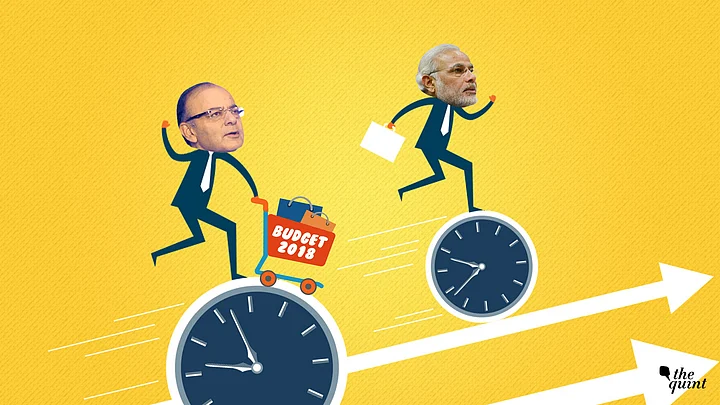Two significant political messages emerged as the Modi government’s last Budget session before the 2019 Lok Sabha polls drew to an end, without conducting any business, except to ram through the 2018-19 Finance Bill amid an uproar that made discussion impossible.
One was the first sign of nerves from an otherwise unflappable ruling dispensation that has managed to dominate the national discourse for the past four years. For reasons that continue to puzzle political circles, the Modi government seemed to be running away from a no-confidence motion moved by several Opposition parties despite having the numbers in the Lok Sabha to win.
A Newly Emboldened Opposition
The second was a new found confidence among regional parties that have been emboldened by recent unexpected developments to flex their muscles as they sense opportunities for themselves in 2019.
The teaming up of SP and BSP to crush the BJP in the bypolls in its UP bastions of Gorakhpur and Phulpur, the cracks in the NDA with the exit of TDP, criticism of the Modi government from allies and union ministers like Ram Vilas Paswan who seem dissatisfied, farmers’ protests and the nationwide Dalit outrage (the first of its kind) against the dilution of the SC/ST Atrocities Act – have all added up to a picture of a government under siege.
Normally, any political gains from the discomfiture of the ruling party should accrue to the main opposition. But the Congress has yet to recover from its humiliating defeat in the 2014 polls.
With Rahul Gandhi still in the throes of drafting a roadmap for Congress revival, regional satraps have been quick to seize the moment and set the ball rolling for a united opposition front, with or without the Congress, to take on Modi and the BJP in 2019.
A Total Washout of a Session
In conventional terms, the Budget session was indeed a complete washout. The Lok Sabha spent just one percent of its time on legislative business. The Rajya Sabha performed a little better. Six percent of its time went in legislative work. In historical terms, this has been the worst and most unproductive budget session in 18 years.
While lamenting the waste of public money on parliamentarians who refuse to work, it would be unwise to ignore the political dynamics at play during the session. It is clear that the countdown to the 2019 polls has begun in right earnest and battle-lines are taking shape with regional satraps asserting themselves for a larger share in the political pie. Certainly, regional parties believe that their time has come as the BJP has begun its descent and the Congress is yet to rise.
The onus of running parliament rests on the government. Even if the Opposition behaves in an unruly, recalcitrant manner, it is up to the government to make the parliament work, especially if it has a majority in the Lok Sabha.
Parliament’s Growing Irrelevance
The paralysis that was seen in the just concluded session can be interpreted in two ways. Either the government has no interest in making Parliament function and has decided to bypass the institution by relying on ordinances and executive orders to govern. Or, the government is sinking into a political morass as the impact of missteps like demonetization, a badly implemented GST, inattention to mounting agrarian distress, etc is catching up with it.
However, the government alone is not to blame for making parliament dysfunctional. Opposition parties were quite vocal that the parliament has become meaningless in the current atmosphere.
“The government is not ready to discuss our no-confidence motion. Why should we help them out with legislation and other business?’’ asked a senior parliamentarian.
“This Lok Sabha (the sixteenth) is finished,’’ exclaimed another. “We are all now in election mode.’’
People Must Decide What They Want in 2019
Most Opposition leaders predicted that all future sessions of the parliament would be similarly paralysed in the run-up to 2019. And actually speaking, it would not be the first time.
Before the 1989 elections, as the shadows of the Bofors scandal closed in around the Congress government of Rajiv Gandhi, the parliament virtually stopped functioning. The crisis peaked in mass resignations by the entire Opposition a few months before polls were announced in 1989.
Again, during the tenure of the Narasimha Rao government, the BJP scuttled an entire Winter Session in 1995 over the involvement of Telecom Minister Sukh Ram in a telecom scam. It was the first time that an entire session was washed out without any business being conducted. And significantly, it happened with less than a year to go for the Lok Sabha elections.
Going by the mood visible in the last few days of the budget session, it looks like the 16th Lok Sabha has run its course. Over to the people now to decide what kind of government they want in 2019.
(The writer is a Delhi-based senior journalist. This is an opinion piece and the views expressed above are the author’s own. The Quint neither endorses nor is responsible for the same.)
